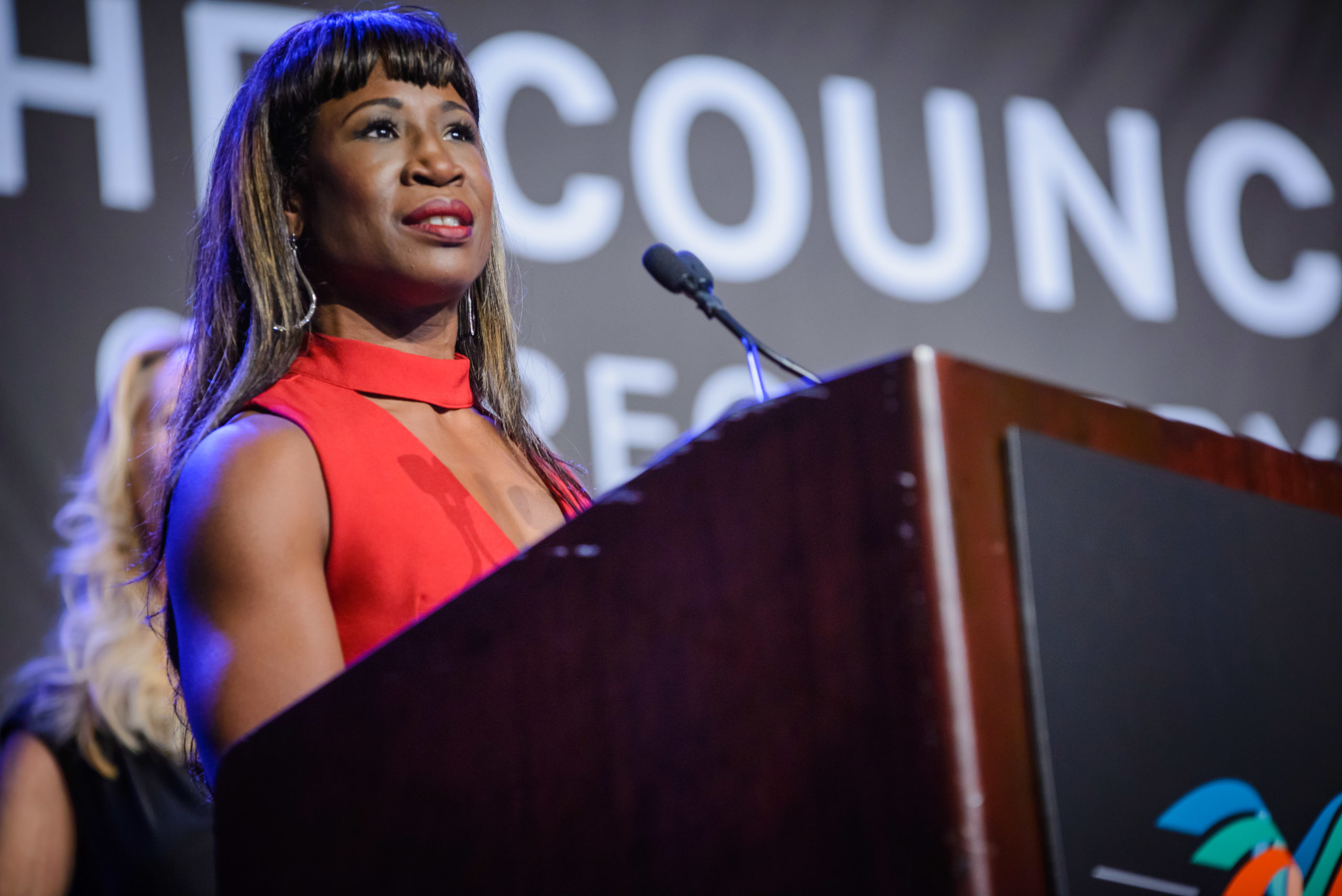Lauren Anderson, poised and beautiful as she was in her stage days, is sitting at a chair in her office at the Houston Ballet with its view of the sprawling skyscrapers along Buffalo Bayou. Anderson has no brag wall here—nor in her home. Old programs, souvenirs of her long career, are tucked inside a crate she keeps only because fans, monied patrons of the arts, and tiny girls in her dance classes sometimes request autographs. A graceful woman with trailing locks and flashing eyes, Anderson remains immediately recognizable as the woman who for years starred as the Sugar Plum Fairy in the Nutcracker and in many other roles as one the first Black principal ballerinas of any major ballet company in the United States.
For decades, Anderson, a Houston native, has been a trailblazer and a model to little girls—and to bold women—everywhere. But now she has another role: The inspiration for and collaborator of Plumshuga: The Rise of Lauren Anderson, a play (and a memoir in progress) debuting at Stages Houston written in collaboration with Houston writer and former poet laureate Deborah D.E.E.P. Mouton. Through what Mouton calls a “choreopoem,” Anderson is telling, for the first time, the story of the struggle behind her success, of her addiction and recovery. She was, on the day of the interview, celebrating 13 years, two months, and three days of sobriety. (But who’s counting?)

Plumshuga runs through November 13 at Houston’s Stages theater. Anderson also appears on Friday as featured speaker at the Council on Recovery’s fall luncheon in Houston.
I know for years you danced the role of the Sugar Plum Fairy in the Nutcracker. But where did the name “Plumshuga” come from?
Well, all those years I was the Sugar Plum Fairy. And you know, Deborah Mouton would say “SHUGA.” I heard her say it. There’s like that the ethnic side of the SHUGA. So she created it.
And I don’t think I ever told her but my dad used to call me “SHUGA BUGGA.” … When I think of it, I think it’s my version of the Sugar Plum Fairy, which I always did, right?
How and why did you decide to share this story now?
Deborah came to me before the pandemic about working on a memoir. We got to know each other during the pandemic. I told her the stories that I always tell when I told my story, the fluff part, and we were talking about it in 2019. And then, of course, the pandemic happens. It’s also a heightened emotional time.
And we had more frequent interviews on Zoom and we really got to know each other. I had a certain amount of trust in her and I kind of started talking about some things. And one of those days I just went [vomiting noise] about some unpleasant stuff, some of the junkier amount of the story. But I had a certain amount of trust in her because we’ve become really close. She’s like a sister.
So why now? Because it’s time. I also knew I was going to write a book and my mentor Ben Stevenson [the Houston Ballet’s former artistic director]. I approached him and, “Ben: I’m writing a book, What do you think?” And he goes, “Well, darling, you must tell the truth. Or else it will be boring.”
So Ben knew. Did other members of the company know about your struggle with addiction?
I don’t know if they knew everything. Nobody knows everything. But they knew. Yeah, you have to see the play.
We just did a feature about city poets laureates of Texas, and here’s Debra D.E.E.P. Mouton, a former Houston poet laureate, creating something beautiful and a kind of an artist mashup.
Yeah, it’s a wonderful collaboration between Houston Ballet, Urban Souls, Stages, and Deborah D.E.E.P. Mouton—it’s like we’ve got two Black women directors. We’ve got a black woman that composed it. It’s about a black woman. Oh, God, yeah. I mean, it’s woman-heavy—woman-STRONG.
Is there anything, you know, without being too big of a spoiler, that you think people will be really surprised to learn about you in the play?
It’s just how and how long I’ve been uncomfortable in my own skin. Right? How long that was, how young I was when I first started feeling just that I didn’t belong. Wherever, anywhere. I think that would be huge because I’m kind of strong and out there and loud and in your face a little bit…
And I’d add: beautiful and talented.
And all the good stuff. But you’d be surprised at the things that happen and how it happens to somebody.
In the play, you see this person on stage in command and doing their thing at the height of the deal and then what’s going on behind the scenes. Yeah, that’s going to be a surprise.
So from your upcoming speech for the Council on Recovery, is there any message from that that you want to share with our readers?
The whole thing is just how awesome you are as yourself. You are the best you can be. It’s like, yeah, quit running from yourself and just be yourself. You are okay. You’re the best you you can be. And then in the play I say, “Hell, you can’t be nobody else anyway.”Editor’s note: Answers have been edited and condensed for publication.







